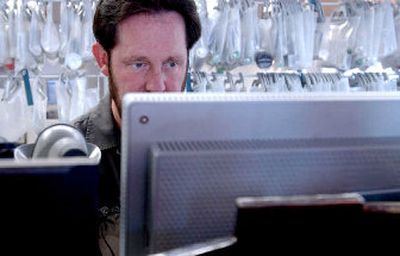Pharmacies take low-cost approach

COEUR d’ALENE – Medicine Man Pharmacies are promoting low-cost, generic drugs in an effort to attract new customers.
Last month, the eight local pharmacies began offering 90 doses of 100 common medications for $19. The drugs include prescription medications for high blood pressure, cholesterol, arthritis, diabetes, depression and Parkinson’s disease. All are generics, and many are what pharmacist Barry Feely refers to as “older generation” drugs, whose costs have come down over the years.
“We’re not losing money on them by any means,” said Feely, “but we are making a smaller margin.”
The promotion is part Boy Scout, and part savvy marketing.
Nearly one in four Kootenai County residents lack health insurance, according to state figures. Feely and Medicine Man’s two other owners saw opportunity in the numbers. Their business coach – a Florida consultant who specializes in helping small pharmacies improve their bottom lines – encouraged them to think of ways to target new customers; in this case, people who normally wouldn’t patronize a pharmacy because they couldn’t afford to fill their prescriptions.
Since the promotion began on Sept. 1, the pharmacies have fielded five to six inquiries per day about the discounted medications, said Don Smith, one of the other Medicine Man owners. Brian Jorgenson is the third owner. Medicine Man has seven pharmacies in Kootenai County and one in Liberty Lake.
Bill Nelson was one of the first to sign up for the new program. The retired logger has diabetes, high blood pressure and high cholesterol. “My wife and I sat down and figured out that if I got all my prescriptions filled every month, it would cost between $900 and $1,000,” he said.
Nelson took the list of drugs included in the Medicine Man program to his doctor, who approved switches to generics, and in some cases, adjusted his medications to match the low-cost varieties on the list. Nelson said his prescription bill dropped to $208 last month. “A guy can afford that,” he said – and the bill will drop again this month, because many of Nelson’s prescriptions came in a three-month supply.
Medicine Man sent out notices about the new program to area doctors. Initially, the pharmacists worried that some doctors might be reluctant to prescribe generics, or annoyed if their patients asked about switching their prescriptions to discount drugs on the list. So far, physician response has been positive, Feely said.
Melissa Ahern, a health care economist at Washington State University in Spokane, said pharmacies’ ability to supply low-cost drugs will become increasingly important. “We’re in an era of recessionary impacts,” she said. “There’s going to be more uninsured,” she said.
Rising energy costs are rippling through the U.S. economy, with higher costs for transportation and manufacturing showing up in higher prices for goods and services, Ahern said.
As part of businesses’ belt-tightening, people who have health insurance through their jobs will end up paying more for coverage, she predicted. Many smaller companies may drop employee health plans as part of cost savings, she said.
From an economist’s viewpoint, prescriptions are a critical part of health care, Ahern said. If taking blood pressure medication can keep someone out of the hospital, it’s a much more cost-effective and efficient form of treatment, she said.